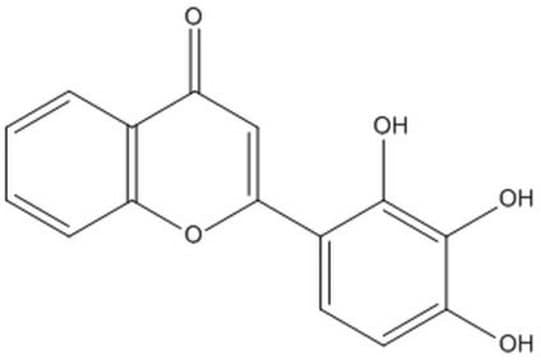345887
Ginkgolic Acid (15:1)
A cell-permeable anacardic acid analog that inhibits protein SUMO .
Synonym(s):
Ginkgolic Acid (15:1), (Z)-6-(Pentadec-8-enyl)-2-hydroxybenzoic acid, Histone Acetyltransferase Inhibitor VI, PCAF Inhibitor II, SUMOylation Inhibitor, HAT Inhibitor VI, Histone Acetyltransferase Inhibitor VI, PCAF Inhibitor II, SUMOylation Inhibitor, (Z)-6-(Pentadec-8-enyl)-2-hydroxybenzoic acid, HAT Inhibitor VI
About This Item
Recommended Products
Quality Level
Assay
≥98% (HPLC)
form
solid
manufacturer/tradename
Calbiochem®
storage condition
OK to freeze
protect from light
color
white
solubility
DMSO: 100 mg/mL
ethanol: 100 mg/mL
shipped in
ambient
storage temp.
−20°C
InChI
1S/C22H34O3/c1-2-3-4-5-6-7-8-9-10-11-12-13-14-16-19-17-15-18-20(23)21(19)22(24)25/h7-8,15,17-18,23H,2-6,9-14,16H2,1H3,(H,24,25)/b8-7-
InChI key
YXHVCZZLWZYHSA-FPLPWBNLSA-N
General description
Packaging
Warning
Reconstitution
Other Notes
Legal Information
Signal Word
Warning
Hazard Statements
Precautionary Statements
Hazard Classifications
Aquatic Chronic 4 - Skin Sens. 1
Storage Class Code
11 - Combustible Solids
WGK
WGK 3
Flash Point(F)
509.9 °F - (calculated)
Flash Point(C)
265.5 °C - (calculated)
Certificates of Analysis (COA)
Search for Certificates of Analysis (COA) by entering the products Lot/Batch Number. Lot and Batch Numbers can be found on a product’s label following the words ‘Lot’ or ‘Batch’.
Already Own This Product?
Find documentation for the products that you have recently purchased in the Document Library.
Customers Also Viewed
Related Content
Select different protease inhibitor types based on your needs to prevent protein degradation during isolation and characterization and safeguard proteins in sample prep.
Select different protease inhibitor types based on your needs to prevent protein degradation during isolation and characterization and safeguard proteins in sample prep.
Select different protease inhibitor types based on your needs to prevent protein degradation during isolation and characterization and safeguard proteins in sample prep.
Select different protease inhibitor types based on your needs to prevent protein degradation during isolation and characterization and safeguard proteins in sample prep.
Our team of scientists has experience in all areas of research including Life Science, Material Science, Chemical Synthesis, Chromatography, Analytical and many others.
Contact Technical Service









